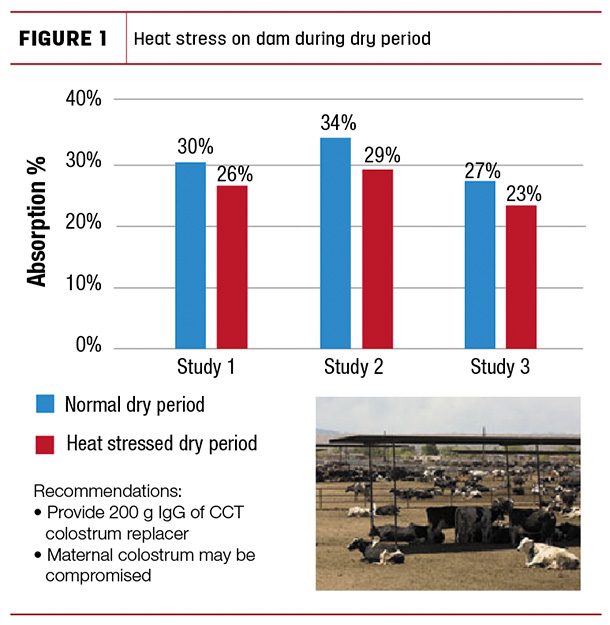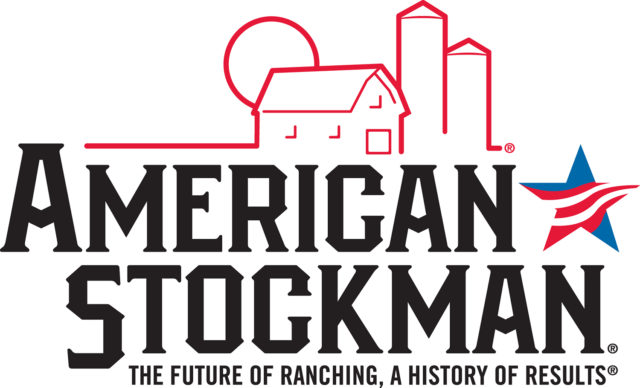As fall calving approaches, you may worry more about flies and heat stress than colostrum. However, colostrum is critical to giving calves the start they need no matter the season. It’s just as important to feed quality colostrum during times of heat stress as it is to feed quality colostrum during cold weather. No matter the season, calves are born with no natural immunity to the pathogens they encounter, and they do not begin to develop their own immune system until 4 to 6 weeks old. Therefore, their early immunity is derived exclusively from the colostrum consumed in their first 24 hours of life.
When evaluating what colostrum product to use, there are a few key factors to consider to give your calves the best start possible. The first is colostral fat. Colostral fat, which is only found in natural bovine colostrum, is what triggers brown fat metabolism within a calf. Brown fat is the fastest to be metabolized and allows a calf to thermoregulate in both the cold and the heat. If heat stressed, calves tend to have issues with hyperventilation and display weakness. This is also linked to calves that received colostrum from cows that were heat stressed during their last trimester. In addition to calves having health challenges, data has shown calves that are not provided quality colostrum will have a decreased weaning weight. In one study, calves weaned at 2 months old had a difference in weaning weight of 173.06 pounds versus 145.28 pounds. This loss of weaning weight, even displayed at such an early age, will have ongoing breeding and health impacts.
Studies have shown that “calves from cows exposed to heat stress during the dry period and fed their dams’ colostrum have compromised passive and cell-mediated immunity compared with calves born to cows cooled during heat stress.” As we enter the end of the hot summer months, the colostrum produced by cows, especially by heifers, decreases in quality and quantity. Figure 1 shows the absorption rate of colostrum in calves that are born to heat-stressed cows versus cows that did not experience heat stress.

Immunoglobulin G, also known as IgG, is the key compound within colostrum that helps provide immunity to a calf. IgG is absorbed within the small intestine and then into the circulatory system. Calves, however, do not absorb all the antibodies they receive. Generally, a healthy calf with no complications will only absorb 48% of the antibodies in colostrum. Calves that are heat stressed absorb significantly fewer antibodies. In fact, they experience a 36% reduction in IgG absorption, which impacts their overall immune development and health.
In order to provide the highest amount of IgG absorption to a calf, another key factor that plays a role in a colostrum replacement can be found in the ingredients list. Begin by looking to see if colostral fat is the primary source of energy to provide the calf with the critical energy source they need and to aid in thermoregulation. In addition, most products on the market have been stripped of many of the key components that provide the impact on the calf’s health. To provide the greatest immunity and the highest quality colostrum, find a whole bovine colostrum that is a USDA Licensed Veterinary Biologic product, meaning it is guaranteed safe – tested for diseases including Johne’s disease – and is regulated for potency and purity. By providing a high-quality colostrum replacer to calves that are born to heat-stressed dams or to calves that are facing heat stress, you are setting them up for success.
Investing in a quality colostrum helps your calves reach their genetic potential. Colostrum also helps protect the calf as they develop their own immune system, so you will be treating less calves, protecting them from pathogens and ensuring your genetic investment is off to the best start.
References omitted but are available upon request. Click here to email an editor.






